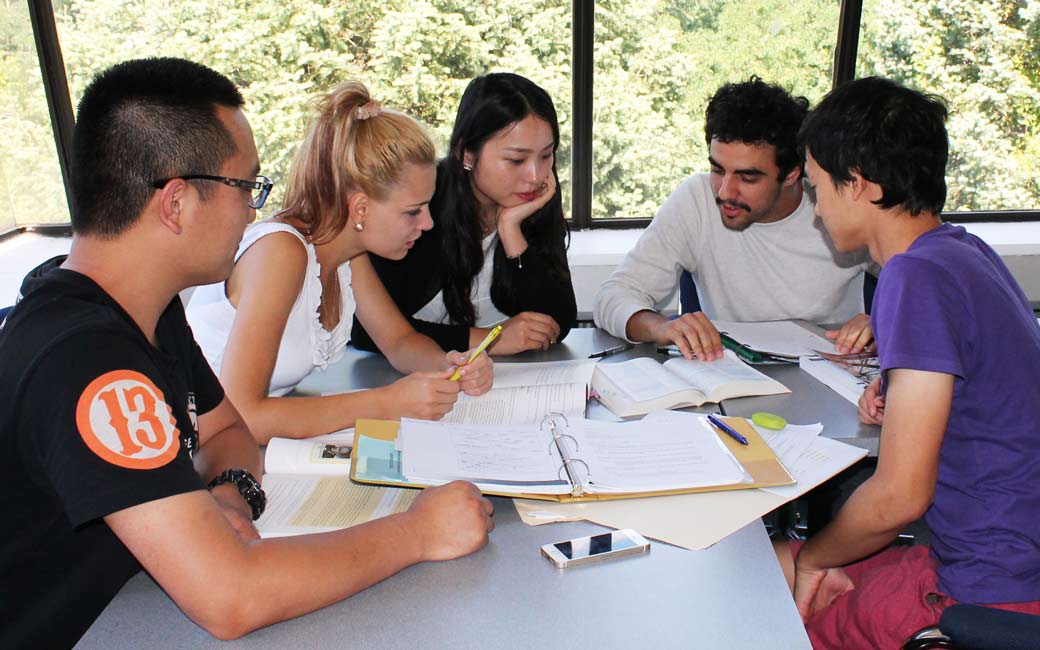Equity & Inclusion

Demonstrate the awareness, attitude, knowledge, and skills required to equitably engage and include people from different local and global cultures. Engage in anti-oppressive practices that actively challenge the systems, structures, and policies of racism and inequity.
Sample Behaviors
- Solicit and use feedback from multiple cultural perspectives to make inclusive and equity-minded decisions
- Actively contribute to inclusive and equitable practices that influence individual and systemic change
- Advocate for inclusion, equitable practices, justice, and empowerment for historically marginalized communities
- Seek global cross-cultural interactions and experiences that enhance one’s understanding of people from different demographic groups and that lead to personal growth
- Keep an open mind to diverse ideas and new ways of thinking
- Identify resources and eliminate barriers resulting from individual and systemic racism, inequities, and biases
- Demonstrate flexibility by adapting to diverse environments
- Address systems of privilege that limit opportunities for members of historically marginalized communities
Develop
Over the course of your educational experience at TU, you can gain equity and inclusion competencies through some of the following methods:
- Join a Multicultural Student Organization
- Visit the Center for Student Diversity
- Explore the resources and trainings available via the Office of Inclusion and Institutional Equity
- Join cultural, religious/spiritual, service, or special interest student club or organization
- Attend events sponsored by cultural clubs and organizations
- Visit Civic Engagement & Social Responsibility for community engagement opportunities
- Explore TU International Initiatives
- Visit the International Students & Scholars office
- Travel and participate in courses offered in different geographic locations and different cultures; visit Study Abroad & Away to explore opportunities
- Consider cultural-focused majors and/or minors in women and gender studies, sociology, human rights and history, LGBTQ studies, foreign languages, international studies, Latin American & Latino/a studies, interdisciplinary studies, philosophy and religious studies, business administration: international business track
- Attend signature programs hosted by the Center for Student Diversity
- Use GoinGlobal to explore international job/internship opportunities
- Participate in experiential education (internships and/or service-learning)
- Explore international internships offered via Study Abroad & Away Office
- Explore international opportunities beyond TU
Develop your skills
LinkedIn Learning
Develop your equity and inclusion skills by completing these free LinkedIn Learning courses. Select the course title below, click “Sign in,” and use your TU email to get started.
- Individual Accountability for Equity and Inclusion
- Inclusion and Equity for Workers with Disabilities
- Diversity, Inclusion, and Belonging
- Developing a Diversity, Inclusion, and Belonging Program
- Cultivating Cultural Competence and Inclusion
- Creating Change: Diversity and Inclusion in the Tech Industry
- Connecting Engagement and Inclusion to a Culture of Performance
- Mindfulness, Diversity, and the Quest for Inclusion
- Making the Case for Diversity and Inclusion
- Inclusion During Difficult Times
Articulate
Use the following list of action verbs to describe activities related to global and intercultural fluency:
- Analyze; collaborate; communicate; discuss; engage; evaluate; identify; immerse; interact; learn; listen; participate; recognize; understand
- Consider adding your preferred pronouns to your resume header
Sample Resume Bullet Points
- Communicated with diverse audiences and stakeholders to ensure solutions are inclusive and enhance belonging
- Participated in member meetings to discuss German culture and hone German-speaking skills
- Collaborated with seven students of varying cultural backgrounds to develop a marketing plan for an Italian company producing flavored water
- Interacted with local residents in Villa Soleada, Honduras, while participating in week-long program to help build homes
- Learned and improved Italian language skills through immersion while completing semester-long coursework
- Sought the feedback and opinions of others and took these ideas into account when making decisions
- Researched impacts of religious upbringing in educational performance
For additional resume assistance, visit the Career Center's Resumes page or schedule an appointment.
Interview Questions
Be prepared to answer common global and intercultural fluency interview questions including:
- How have you worked towards inclusive practices?
- Describe a time when you recognized and overcame your cultural biases.
- Describe when you initiated a connection with someone from another culture.
- Give a specific example of how you helped create an environment where differences are valued, encouraged, and supported.
- Tell me about a time when you worked on a team with individuals from different cultural backgrounds.
- Describe how your college experience has been enhanced by exposure to diverse people, places, or experiences.
- Describe a time when you found it difficult to work with someone from a different background.